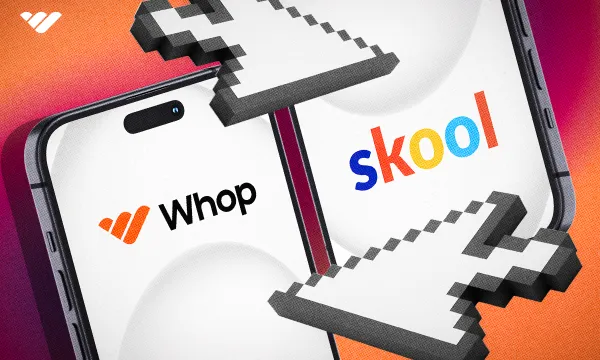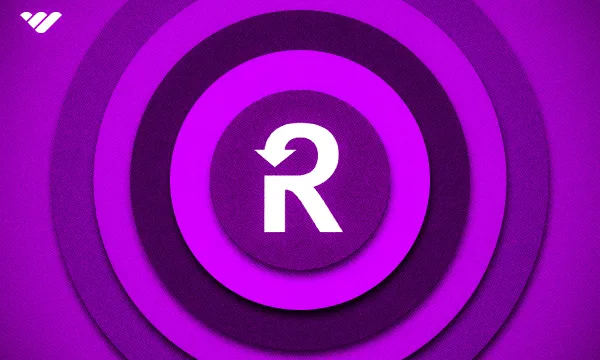By now, you probably know the basics of ChatGPT and have likely used it yourself for simple tasks. The Large Language Model (LLM) made by Open AI hit a record for exponential user growth, going to 1 million users in a record 5 days and 100 million monthly active users just 2 months after its launch in November 2022. It’s arguably leading the AI revolution, and many people are already taking advantage of it to scale their businesses or start new ones. You may have seen headlines or Tweets along the lines of “Teen makes five figures in one month using ChatGPT”--but what are people actually doing to make money using the LLM?
Out of the box, ChatGPT has far more capability than you probably know, including the ability to use supplementary plugins and build apps on top of it. So, let’s dive in to learn more about ChatGPT, the kinds of ChatGPT plugins and apps on the market, and how you can use and sell associated plugins and apps.
If you already have a ChatGPT plugin or app ready to go, head to the end of this article to learn more about selling access to your product with Whop!
Things You Might Not Know About ChatGPT
The spectrum of the ChatGPT user ranges from the casual tinkerer all the way up to the super-prompter using the LLM in place of a team to run a profitable business.
That said, it’s hard to estimate what the distribution of users looks like on the spectrum, but it would be safe to guess that most people fall closer to the category of the casual user and that those who reap the full benefits are few. In order to bridge the gap and join those who are cashing in with AI, you need to gain uncommon knowledge about ChatGPT, which includes:
- It can be trained on examples and data
Simply giving examples to set the context before a prompt can change the reply to something more relevant compared to the standard output. For those who have datasets, you can finetune a ChatGPT model using Python so that it can understand things like trends and sentiments, for example, in the financial markets. - It can act as a specialist and answer accordingly
Sometimes, rather than giving an example to set the context, it is more helpful to tell ChatGPT to act as a specialist in a certain field and it will answer all of your prompts and questions in that role. The more descriptive you are, the better your reply will be. For example, if you want marketing advice, you can input a prompt like “Act as if you are a CMO with over 10 years experience serving ecommerce companies with seven-figure monthly ad spend”, and then go on to ask it about a Facebook ad campaign. You can even ask it to act like someone like Elon Musk when replying if asking for business advice. - It’s never a hard no
When asking a question, you may be met with a “Sorry, as an AI language model, I can’t answer that” from the model either due to a restriction or because of how you phrased the question. Think of a more clever way to ask for the information you are seeking or simply paraphrase your previous question and you may get a positive reply. For example, you may be asking for the process of a method in code and you may be met with a no, but if you rephrase your question to ask for the first step and then subsequent ones, you may get the full answer.
Additionally, you can do your own research regarding a DAN–short for Do Anything Now–prompt, which is meant to “jailbreak” ChatGPT to answer anything. - You can use a VPN to expand functionality and produce broader results
A VPN makes access to ChatGPT possible if you are in a region where it is banned, whether that’s on a college campus wifi network or in a certain country. Even if ChatGPT isn’t banned in your region, the results and data still are not the same for everyone, so switching regions on your VPN may help give different and possibly more helpful replies. - Access the internet live with GPT-4 on ChatGPT Plus
If you’re looking for an answer regarding technology or current events, you’ll be restricted by date based on the data that ChatGPT was trained on, which puts it behind to roughly 2021. So, anything that has happened since then is not something that the LLM will be able to answer. With a ChatGPT Plus subscription, however, you will be able to use the GPT-4 model which has live web browsing access, allowing it to do research on modern events and technology and produce accurate replies that have real-time data. - You can use plugins and apps to make the best use of its full capabilities
Visualization and diagrams, pre-trained chatbots and summarizers, and niche specialists that act like a trained virtual assistant all make for expanded capabilities that bring the model to the upper bounds of its utility
Using ChatGPT Plugins and Apps
While you can continue to tweak your prompts and get more use out of ChatGPT while doing so, those who want to be efficient with their time by leveraging tools that others have built will find using a plugin for ChatGPT the best way to do so. There is also the option of ChatGPT apps that run in the background. The difference between ChatGPT plugins and apps is that a plugin is meant to be used within the ChatGPT interface, and a ChatGPT-based app has its own interface, often in the form of a web-based application.
Examples of helpful ChatGPT Plugins
As of late 2023, you’ll still need ChatGPT Plus running GPT-4 (the free version runs GPT-3.5, and Plus is $20/month) to access plugins. Once you activate your Plus subscription, you’ll be able to access a whole library of plugins, pretty much all of which are free. Here are some examples of the best:
- Development plugins
For anyone who is a developer or wants to learn how to code efficiently, ChatGPT’s very own Code Interpreter plugin, which is a feature of GPT-4, is a powerful assistant that can help you debug, explain logic, and create workflows. It’s similar to Github’s Copilot, which also uses AI to become your coding assistant. Zapier, which connects a plethora of SaaS and web applications to create automated workflows, has its own ChatGPT plugin which lets you unlock its capabilities even faster. - Travel Plugins
Expedia was one of the first companies to create a ChatGPT plugin that is native to their platform. Activating this plugin will give you a travel assistant that you can talk to like a human to organize the logistics of your trip, all the way up to booking everything and even suggesting off-the-beaten-path itineraries. Kayak also has its own ChatGPT plugin. - Shopping plugins
A perk previously reserved for the elite, apps like Instacart allow users to instantly summon personal shopping assistants for their consumer needs. Using ChatGPT plugins that are native to the apps unlocks a whole new level of concierge service that will make this experience even more seamless. Companies with plugins and their benefits include Instacart for shopping, OpenTable for restaurant suggestions and reservations, and Klarna for discounts. - Document readers
For students or those who conduct research for any reason, it’s common to end up with a pile of digital documents and files that are a headache to sort through. Plugins such as ChatWithPDF allow you to query the text of any and all PDF files that you load it with so you can speed through research like never before. The ScholarAI plugin produces an even broader capability by giving you access to an enormous database of peer-reviewed academic and scientific papers and allows you to browse their contents in the same way you would use Google, but with even more concise and immediately summarized and cited results.
Useful ChatGPT Apps
Since these apps will have ChatGPT as a part of their core function running in the background, you won’t need to have GPT-4 or in most cases even a ChatGPT account to use them–you will simply need to sign up for their service as a customer. Arguably the most useful benefit is having an intuitive interface to work with as opposed to having to interact with strings of prompts in the barebones environment of ChatGPT. Here are some of the main categories and examples for ChatGPT apps.
- Copywriters
Arguably one of the biggest uses for ChatGPT is its ability to create copious amounts of copy. This shouldn’t be a surprise as it is, at its core, a language model and natural language processing tool. Using prompts can prove difficult and require a lot of priming and testing to produce decent copy, so many turn towards one of the many copywriting tools on the market to have a better out-of-the-box solution. Examples include Jasper and Jarvis, which can pump out thoughtful text for things like social media captions, web pages, and even articles–the latter of which you should probably edit manually and exercise caution with if your goal with them is SEO. - Chatbots
Even though ChatGPT in its default form can be interacted with as a chatbot, it won’t be very good if you want any sort of expert advice or if you want a chatbot that can be helpful as an assistant. Genie and Personal.ai can act as not only writers but can act within certain roles that you give it far better than if you were to prompt train GPT, without needing to go through any finetuning process. - Traders
By nature, AI is meant to parse and process data at an enormous capacity to create concise insights. Large amounts of data in any area, including trading the financial markets, can produce actionable judgment calls that can inform your trading decisions. General categories in which you can find trading-related ChatGPT apps range from those that can do technical analysis or judge sentiment. Some can even execute trades for you if you feel comfortable enough for them to do so.
How to Build Your Own ChatGPT Plugins or Apps
For the technically inclined, building an app with ChatGPT or a plugin for it is an excellent way to take your product to market and capture the many who want to join the AI movement.
While the specifics will vary wildly depending on the functionality you want from the app, the first step that you will take no matter what is to create and use an OpenAI API key so you can run ChatGPT behind the interface that you design. Designing a user interface that stands out and is pleasurable to use is perhaps the most important part of the app-building process. This is often the main reason that a consumer will use a ChatGPT app that sometimes has only a few prompts and an interface in between simply using GPT directly.
It is possible to create a mobile app that runs on ChatGPT, but a web based application is the more common solution because not only does it require less development to create, but most users are used to accessing AI tools via a web browser as opposed to a mobile app.
Using NoCode to build a ChatGPT app
In today’s age, people sensationalize the speed at which it is possible to launch a functioning piece of software with the help of NoCode tools or even ChatGPT itself.
If you consider that all you need to launch a ChatGPT app is a web app front and back end, there are NoCode solutions that can allow you to build this quickly with little to no development knowledge. You can also learn quite a bit of code simply by asking ChatGPT to show and describe any programming request within its capability, and it can easily output a code-formatted response that you can learn from, test, and debug all within ChatGPT.
Be aware though that if you choose to go the NoCode route or want to rely on ChatGPT to give you functioning pieces of code, you may be able to build something quickly but it won’t be able to compete with the custom development of all of the other ChatGPT apps.
Using Whop to Sell Access to ChatGPT Plugins and Apps
If you have created something of value that you are ready to share with the world, getting it out there where it can be discovered is often the most difficult part. Thankfully, Whop solves this for you by letting you easily go through a process to list your ChatGPT plugin or app that takes less than 10 minutes and will put you in front of our rapidly growing two-sided marketplace.
Here’s how to use Whop to sell access to your ChatGPT app or plugin:
Step 1: Sign up with a store name and branding in mind
Step 2: In the What are You selling step, choose “AI Software”
Step 3: You can choose ChatGPT Plugin, Webapp or Software (if you want to grant license keys) as your product
Step 4: Once your product is ready, simply publish it on the marketplace and you’re live!
For a visual run-through, watch this video on how to become a seller with Whop:
Another perk of using Whop is that you can easily add files such as a setup guide in addition to selling your software or Webapp access. In addition to selling a standalone app or plugin, some sellers on the marketplace use these to supplement the functionality or as a feature of their paid community.
👉When you're ready to start selling, remember to sign up with Whop! It only takes a few minutes to get started and put your product in front of a thriving marketplace.





